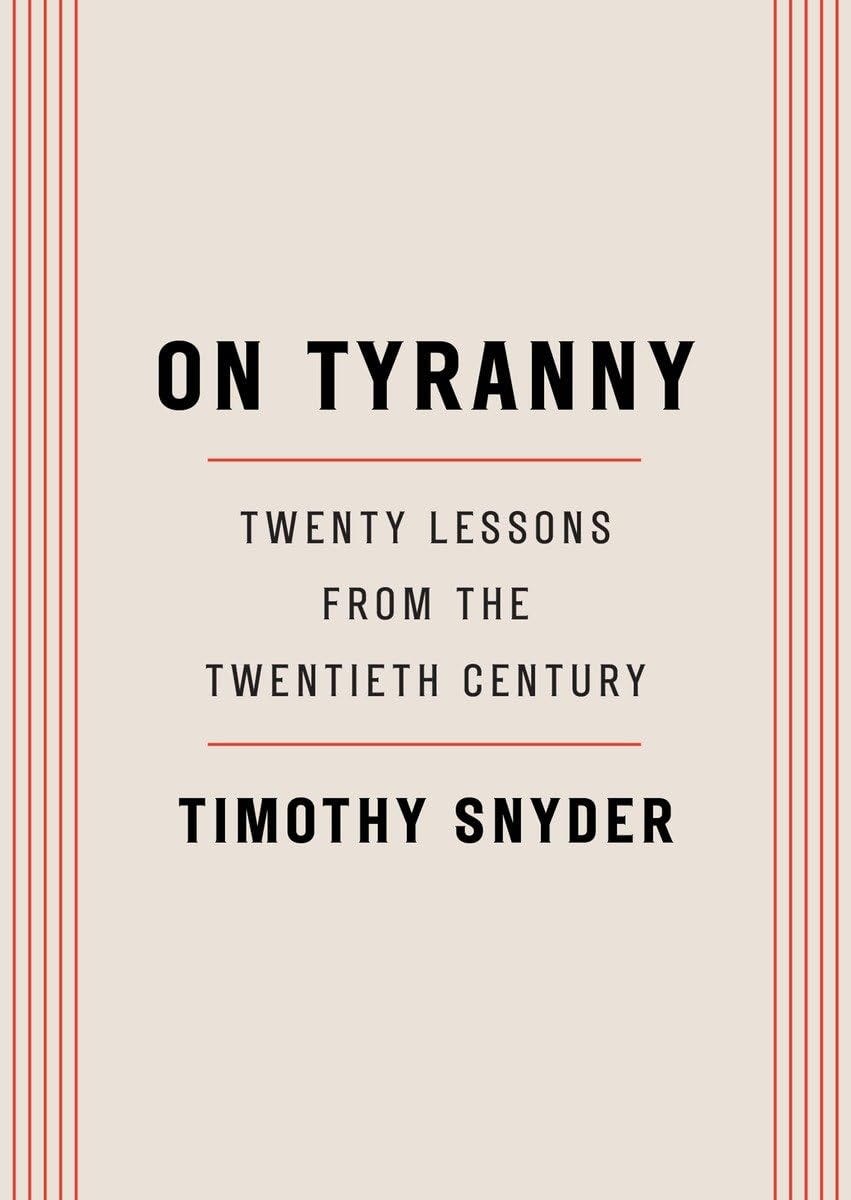“Do not obey in advance. Most of the power of authoritarianism is freely given. In times like these, individuals think ahead about what a more repressive government will want, and then offer themselves without being asked. A citizen who adapts in this way is teaching power what it can do.”
– On Tyranny, Timothy Snyder
It’s the day before the inauguration. The TikTok ban has gone into effect. The New York Times released a one-hour-long interview with antidemocratic extremist Curtis Yarvin. Hamas and Israel reached a “ceasefire” deal. Trump wants to buy Greenland. It’s a moment in time.
Young people are resisting democracy in greater numbers than before, including young people that I know. Memories of authoritarianism and fascism have faded. People seem to see democracy as just one option among many, or they don’t even understand what democracy truly is. I sometimes joke that a lot of people I’ve spoken to seem to think our options are “democracy, dictatorship, monarchy, the parliamentary system, the presidential system”—that they are comparable suggests that they are all in the same category, and that all are equally reasonable systems, which, of course, is not true.
A Substacker whose writing I admire but whose ideology I couldn’t disagree with more wrote about how we shouldn’t be concerned about a second Trump term. The reason, he posits, is that Trump won’t actually be able to change anything, that his executive power is too limited.
Not only is this part of Yarvinist thought, but it also misses a central point.
We shouldn’t solely watch the individual authoritarian leader, we should watch the institutions—and how they follow suit to save their own asses. We should watch how the cabinet is filled with cucked loyalists who are afraid to speak up against the Strongman (Pam Bondi, for instance; in her confirmation hearing the other day, she declined to answer key questions about Jan 6th and election denialism). We should watch how Meta is removing fact-checking functions. We should watch how Bezos stopped The Washington Post from endorsing a candidate. And we should watch the billionaires flying to Mar-a-Lago in the weeks after Trump’s victory to curry favor.
These are all examples of what historian Timothy Snyder calls obeying in advance. And it is not only seen among elites—it’s everywhere.
In my post about Dimes Square being Trump’s Leni Riefenstahl, I make a distinction between three political groups associated with the scene. The first two groups are disillusioned with democracy and have ended up in one of two camps—either the nihilist camp, which sees the world as an aesthetic phenomenon, or the antidemocratic Yarvinist camp, which believes civil rights inevitably lead to tyranny and that, since inequality is inevitable, it’s our responsibility to lean into it.
For those unfamiliar with Yarvin, he thinks that Americans should get over their “dictator phobia” and that democracy should be replaced with a monarchy. His fanbase includes JD Vance, Peter Thiel, and Marc Andreessen. He is an extremist with influential friends, and we should be concerned.
On top of that, Yarvin’s ideology is literally bad philosophy. It isn’t the rigorous, internally consistent, and rational theory that his followers believe it is. I plan to write another post at some point about the many errors in reasoning Yarvin makes, notably breaking Hume’s is-ought rule, which posits you can’t derive an “ought” from an “is.”
I think Yarvinists view themselves as being ahead of the curve— when, according to them, the democratic order inevitably collapses, they are prepared to replace democracy with a new system. What they see as being ahead of the curve, I see as obeying the Strongman in advance.
A lot of nihilists claim voting is pointless, and that “nothing can be done.” They have resorted to a type of internal exile where they view the world as an aesthetic phenomenon, excluding the impact of political and moral considerations. It is an internal exile that lets you avoid interacting with any real-world concerns, a sort of resignation that benefits the Strongman.
It’s depressing to see otherwise smart, talented writers and artists obey in advance. This is not the free thinking they like to claim they engage with.




